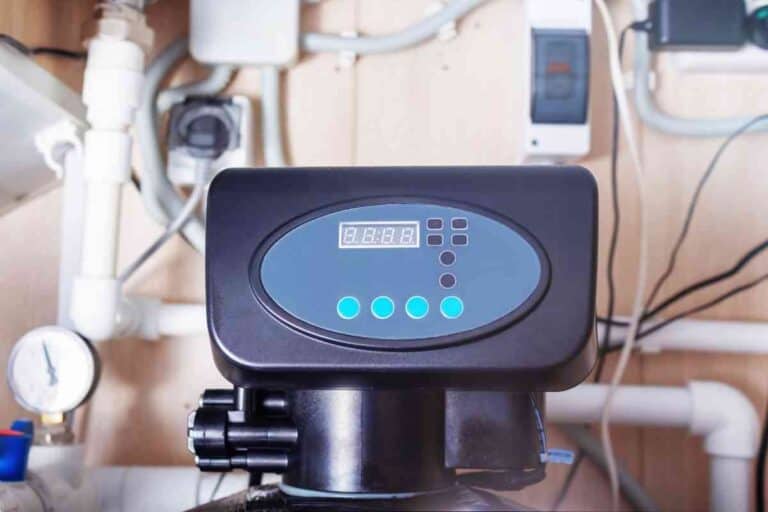Does Your RV Need To Be Grounded?
RVs are increasingly becoming popular among people who love the nomadic lifestyle. These homes on wheels are convenient due to power connections that give you access to devices and appliances that we use in our everyday lives, such as laptops, TVs, lighting, and refrigerators. That means you’ll be dealing with a complicated setup that combines electrical power with the required safety measures to keep you safe.
Does Your RV Need To Be Grounded?
You need to ground your RV as long as you’re connected to an electricity grid or shore power. Without grounding, the electric power running via your recreational vehicle and into your devices can electrocute you once you touch something.
What Can Happen If I Fail to Ground My RV?
Failing to ground your RV, especially when connected to an electrical grid, can be very dangerous. The electricity can leave your power connections, and the current will start running through the exposed metal parts of your RV.
That can affect its walls, but it’ll be stronger around the chassis of your motorhome. This phenomenon is called “hot skin .” If you touch an electrically charged RV, you’ll feel the electric shock on your body’s skin.
Hot skin in mild cases such as using a slightly damaged shore power cable will feel like very strong static or small shocks. On the other hand, an electrically charged RV can be deadly, especially when connected to the main electrical grid.
Additionally, even small amounts of accumulated energy can harm you, particularly if you are barefoot or have wet hands.
The hull and chassis of recreational vehicles do not touch the ground directly. As a result, the electrical charge may linger for some time, even after disconnecting your RV from your power supply. Also, rubber wheels can insulate your motorhome from the ground.
If you detect your RV is becoming electrically charged, you need to disconnect it from power immediately and wait at least one hour before touching anything. Meanwhile, you can get in touch with an experienced electrician to inspect the wiring of the RV and make the necessary repairs to keep you safe.
How Can I Ground My RV?
People who want to break the norm usually gravitate towards recreational vehicles to meet their needs. Besides, it can be cheaper to live in your RV than in a suburb house. With proper care and handling, your recreational vehicle can also be as safe as your house as long as it’s properly grounded.
Grounding means introducing low-resistant conductors that allow electric power in your motorhome to travel via the ground. In reality, electricity moves back to the earth and selects the path with the least resistance. Every grounding system must ensure that the path is clear and doesn’t go through people.
In most cases, grounding is automatically taken care of when you hook into standard electrical outlets such as those found on many campsites.
Here, you’ll be well-grounded as long as you’re using three-prong plugs. Also, ensure that your main cable is in great condition and that the longest prong in your plug isn’t damaged or bent.
If you connect to the main electricity grid, you’ll use a large rod to ground your RV. The rod is the most visible part of the Equipment Grounding Conductor. Ensure the rod enters deep into the earth by eight feet and then bond or connect to the earth or neutral point of the main grid.
This connection provides an easy and clear path for electric power to dissipate. Without this connection, excess electrons will accumulate around your battery packs or the chassis of your RV.
The process will be a bit different when using an inverter, but you can follow the manual to ground your RV successfully. In most cases, you’ll need to hook your inverter ground to your RV’s chassis. Also, ensure that your RV has GCFI outlets to enhance your safety.
They’ll trip if they detect any problems with its grounding system. Although installing GCFI outlets might cost you more money upfront, it is worth it since it can save your life.
How Can I Ground a Chassis to Battery?
The main concept of grounding a chassis to the battery is to have a good connection between the chassis and the battery without forming a circuit.
That means you need to ensure that electricity flows towards the ground only and does not go back. To achieve that, you need to connect the battery’s negative terminal to a ground cable that’ll connect to the engine block or the starter motor.
As a result, you’ll have one wire running from the battery’s negative end to the ground and another wire for the rest of the power circuit.
The main reason for connecting from the battery’s negative end is because electrons usually move from the negative to the positive terminal and not the other way round. If you place your ground wire at the positive terminal, any excess electrons will pass through the circuit and probably you before they can reach the ground.
To prevent such incidents, ensure your chassis to battery connection does not create a circuit.
Do I Need to Ground My RV Solar Panels?
As a general rule, any power source that can conduct electricity needs a clear circuit to the ground. Therefore, RV solar panels also need grounding. A solar panel comes with a grounding lug, a small part located near the base which connects its system to your chassis ground.
The grounding lug prevents the solar panels from electrocuting you, especially when on your motorhome’s roof or when cleaning the panels.
Before installing solar panels in an RV, you need to check with your electrician to ensure the grounding lug is properly installed.
Also, check them from time to time to make sure they’re not damaged. This way, you will prevent shocks when removing debris from your panels or cleaning your RV.
Do I Need an Electrician to Ground My RV?
You need to ground your recreational vehicle every time you park in a camping ground and connect it to power.
Therefore, your grounding system should be simple and safe enough so that you can connect it yourself with no room for error. However, you don’t need an electrician every time you take a road trip or go for a vacation.
Although many individuals with basic electrical systems knowledge venture into DIY home repairs, you should not install your RV electrical system unless you are qualified.
The initial setup of your motorhome’s electrical system is important and needs to be handled by a professional electrician.
That will ensure your recreational vehicle has a permanent ground connection, enabling you to easily “plug and play” whenever you take a road trip. This way, you’ll prevent hot skin problems, which can be fatal.
How much Does RV Grounding Cost?
If the electrical system of your RV is already done, grounding is something you can do on your own without any problems. However, some situations may require the attention of a qualified electrician.
Generally, the total costs you’ll spend on grounding your motorhome depends on the nature of your grounding system and the hourly rates charged by your electrician. Before assigning the grounding task to your local electrician, you need to know this information and the final price to avoid problems along the way.
Wrapping Up It would be best to ground your RV as long as there’s electricity flowing through it. In most cases, the way you ground your recreational vehicle mainly depends on how you supply it with electric power.
If you are using grid power in your RV, you’ll need to use some form of earth ground. Campsite power outlets are often designed with grounding in mind. That means you only need a three-pronged plug to power your devices. Ground your RV properly before connecting to a power supply to avoid serious injuries or death due to hot skin problems.






